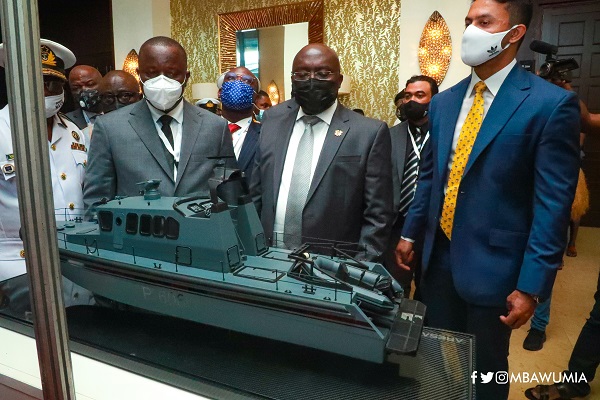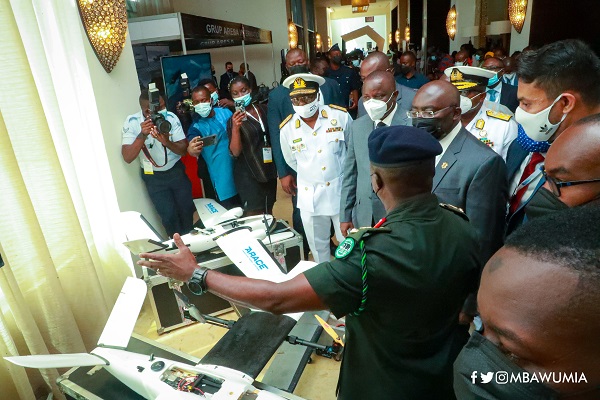|
Getting your Trinity Audio player ready...
|
Dr Mahamudu Bawumia, the vice-president, has called on countries bordering the Gulf of Guinea and stakeholders in the international maritime industry to collaborate in the fight against piracy along the coast.
Dr Bawumia was speaking at the 2nd edition of the International Maritime Defence Exhibition and Conference (IMDEC ‘21). The conference is bringing together participants from over 70 countries.
The vice-president noted that the perpetrators of criminal activities at sea have not been deterred by the paralysing effects of COVID-19, adding they have rather stepped up their attacks.
“As nations seek to readjust and realign themselves in respect of trade, development and economic growth post COVID-19, coastal states and even land-locked countries have a huge stake in dealing with matters governing maritime security. For one simple reason: whatever measures and strategies put in place to revive economies would largely depend on trade.
“It is a fact that more than 90% of international merchandise is moved by sea. Therefore, international trade cannot be revived without a secure maritime domain,” he said.
Reports indicate that a total of 79 actual and attempted attacks were carried out in 2020 in the Gulf of Guinea, representing a 34% increase as compared to 59 attacks recorded in 2019.
Similarly, there was a rise in the number of cases of Kidnapping for Ransom (KFR) and hostage taking. In 22 separate attacks recorded in 2020, 130 out of 135 persons kidnapped globally were reportedly abducted in the Gulf of Guinea alone. This represents 95% percent of all kidnapping cases with Nigeria recording 62, Benin 29 and Ghana six, official figures state.
The situation has become even more precarious considering that over the past two months, about 10 crew members of two Ghanaian-flagged fishing vessels have been abducted in separate incidents along the Gulf of Guinea.

“The first half of the year (2021) has witnessed greater piracy threat and activities with over 30 recorded incidents. These incidents led to some renowned maritime security institutions issuing warning notice to all vessels plying the Gulf of Guinea. This is detrimental to the security and economic interest of the region,” Dr Bawumia said.
Protecting Ghana’s coast
Outlining a number of measures being undertaken by the government of Ghana, including acquisition of Offshore Patrol Vessels (OPVs), Fast Patrol Boats and Crafts, and the construction of Forward Operating Bases on the coastal frontiers, Bawumia said government will also see to training and welfare of the Naval Personnel to put in their best and to remain professional in the discharge of their duties.
“Other stakeholders are not being left out of the task as the Ghana Maritime Authority, Ghana Ports and Harbours Authority, the Fisheries Sector, the various institutions in the oil and gas sector and the entire maritime industry, are being supported and encouraged for their own transformation.
“That is not all, government is set to endorse a comprehensive National Integrated Maritime Strategy that will enhance interagency cooperation and thereby boost the collaboration among Land, Sea and Air Forces and key stakeholders in the country. This is required because securing the maritime domain for a developed blue economy entails coordinated actions among all key stakeholders in the country.”
Source: Daily Mail GH





